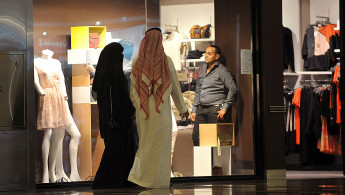Saudi Arabia and UAE introduce VAT for first time
Saudi Arabia and the UAE introduced value-added tax (VAT) from Monday, the first time the tax-free Gulf countries have introduced the levy.
It is the latest measure introduced by Gulf states to bring in revenues, after governments were forced to make spending cuts due to tumbling oil prices.
Saudi Arabia also unannounced a hike of up to 127 percent in petrol prices with immediate effect from midnight.
The five percent sales tax applies to most goods and services and analysts project that the two governments could raise as much as $21 billion in 2018, equivalent to two percent of GDP.
Many fear it could have an impact on spending in the Gulf states. Dubai has long held an annual shopping festival to draw bargain hunters from around the world to its glitzy retail palaces.
Saudi Arabia has deposited billions of dollars in special accounts to help needy citizens face the resulting rise in retail prices.
The other four Gulf states - Bahrain, Kuwait, Oman and Qatar - are also committed to introducing VAT but have decided to delay the move until early in 2019.
The hike in fuel duty in Saudi Arabia was the second in two years, although petrol prices are still some of the lowest in the world.
High-grade petrol rose 127 percent from 24 cents a litre ($1.09 a gallon) to 54 ($2.46), while low-grade petrol rose 83 percent from 20 cents a litre (91 cents a gallon) to 36.5 ($1.66).
Saudi Arabia has introduced measures to tackle its economic deficit including cuts to energy subsidies.
Riyadh has reported a deficit of $260 billion over the past four fiscal years and does not expect to balance its books before 2023.
To finance its mounting public debt, the kingdom has withdrawn around $250 billion from its reserves over the past four years, reducing them to $490 billion.
It has also borrowed around $100 billion to make up for the shortfall.





 Follow the Middle East's top stories in English at The New Arab on Google News
Follow the Middle East's top stories in English at The New Arab on Google News
![Netanyahu furiously denounced the ICC [Getty]](/sites/default/files/styles/image_330x185/public/2024-11/GettyImages-2169352575.jpg?h=199d8c1f&itok=-vRiruf5)
![Both Hamas and the Palestinian Authority welcomed the ICC arrest warrants [Getty]](/sites/default/files/styles/image_330x185/public/2024-11/GettyImages-2178351173.jpg?h=199d8c1f&itok=TV858iVg)
